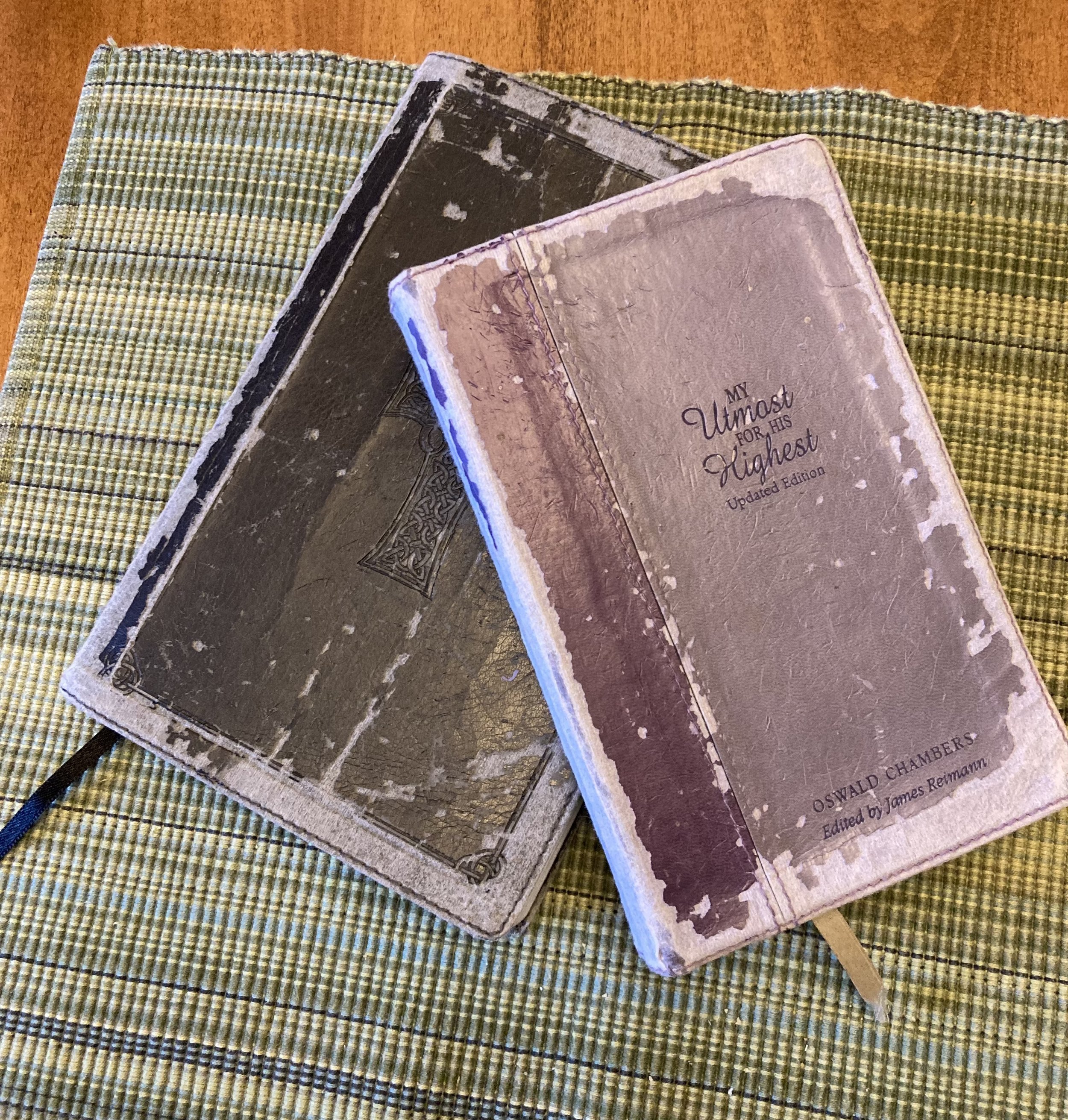Becoming a Child to Tear Down a Wall
Writing a faith post is not always as easy as writing a fashion post. A fashion post is just a matter of choosing an outfit, taking a few pictures and then talking about it. The hardest part is probably deciding what to put on. That, and my photography skills are still a work in progress. However, a faith post requires more thought. Not only that, but when I talk about God, and His word, I want to make sure that what I am saying makes sense and is accurate according to His truth.
Today I was reading in my devotional book. I have a copy of Oswald Chamber’s My Utmost for His Highest. I have been using this devotional for years. The copy I currently have is 15 years old. It is pock marked, highlighted and written all over, much like my oldest Bible. The thing I like about this devotional is that the truths he spoke about, back in the early years of the 19th century are still just as true today. That is the thing about God’s word and devotionals that stick to Biblical truth, it does not change. It is constant.
I know many people will say that is the problem. We need to change to keep current in this crazy world. The problem is I do not believe that. God’s word is living and active. It has, is and will continue to have the ability to move and change lives. The focus in today’s world is what will make me happy. After all, being happy is all that matters, right? If I am happy, and everyone else is doing what they want to be happy, then there will be no more wars, no more greed, no more racism, no more hatred and no more crime. Everything will be perfect. Not!
Oswald said something interesting this morning.
“It is our own opinions that make us dense and slow to understand, but when we are simple we are never dense; we have discernment all the time.”
Have you ever noticed how set in our ways we become as we get older. Our brains stop making new pathways and we just do the same things over and over again. Now, researchers and scientists studying Alzheimer’s are saying we need to do things differently. We need to be learning and changing our routines to keep our brains active and get longevity. The same is true in our spiritual lives. We don’t need to change God’s word so that it fits our lives, we need to change our hearts and minds to get back to the basics of God’s word.
Pixabay
When is the last time you had a deep, gut wrenching prayer time with God? How often do you spend really reading and understanding His written word? Is your worship just a Sunday morning thing, or do your regularly lift your voice and your heart heavenward?
When I think of simplicity I think of what Jesus said regarding children.
“16 But Jesus called for the little ones, saying, “Allow the children to come to Me, and do not forbid them, for the kingdom of God belongs to such as these.
17 Truly I say to you, whoever does not receive the kingdom of God like a child will not enter it at all.””
Pixabay
As Oswald said, it is our own opinions or creeds that keep us from really hearing and understanding what Christ is saying to us. Jesus puts it straight forward in the above verses. It is only by becoming like children that we will be able to enter heaven. What qualities does a child have, that makes it easier for them to believe?
1 - An ability to believe without seeing.
Pixabay
If you tell a child there is an ice cream truck outside, they will probably go running out the door to see it. Children take what we say at face value. They don’t try to rationalize, or come up with arguments for why they shouldn’t believe, they just do it. Children are the most likely to believe in magic, Santa Claus and the Tooth Fairy, even though they have never seen the real deal. Jesus knows, in order for us to have eternal life, we have to believe without actually seeing Him with our physical eyes.
2 - An ability to trust.
Pixabay
Children are very trusting, especially when they are little. Unfortunately, this is why predators target them. It is easy to coax a small child at a park to come see the box of puppies you have in your car trunk, because they will trust you. It is not until they have gone through bad experiences that children learn to not trust people. Jesus is absolutely trust worthy. He knows that without that complete, unreserved trust in Him we will not see the kingdom of Heaven.
3 - An imagination.
Pixabay
What are we without the ability to imagine, whether it is to imagine a world in a fictional story, or the ability to imagine that English Cottage garden we’ve always wanted? God gave us an imagination. Being able to imagine God, in all His forms is harder for us to do as adults. A child, however, will create a God who is all at once super hero and amazing bearded giant all rolled into one. Using the imagination that God has given us is the very means for the camel to fit through the eye of the needle. (Matthew 19:24)
4 - Joy.
Pixabay
Going back to my study of the word rejoice and eventually the word joy, I find it fitting that one of the simplest traits of children is that of joy. Think about how children view things like Christmas, animals at the zoo, rides at the park, picnics, puppies, kittens and flying kites. They most often do these things with a celebratory air of joy. This joy is that which gives us the ability to transcend this earthly shell and commune with the very being whose name is “I AM.”
Recently, in my Saturday morning Zoom group we were looking at 2 Corinthians 10. This section stood out.
“3 For though we walk in the flesh, we do not war according to the flesh,
4 for the weapons of our warfare are not of the flesh, but divinely powerful for the destruction of fortresses.
5 We are destroying speculations and every lofty thing raised up against the knowledge of God, and we are taking every thought captive to the obedience of Christ,”
I am not going to get into the whole idea of spiritual warfare as I have covered that previously on the blog, but there was something that stood out to us. In the above version we see the term “lofty thing”. In other versions we see, “high thing” (KJV), “lofty opinion” (ESV), “every pretension” (NIV), and “every proud obstacle” (RSV). Our facilitator, April, said that according to one thing she read these lofty things or lofty thoughts are like walls. These are barriers that have been built by us and keep the truth of God’s word from getting through.
Pixabay
Think about this for a minute. What does pride, bitterness, hatred, and other strong emotions do to our minds when left untended? In addition, what does a regular diet of vain philosophies, manipulative ideologies and other false doctrines do in our minds? They begin to be the bricks in a wall that we build, separating us from the one who loves us most; the only one who is always looking out for our best interests and who always speaks truth to us.
What Oswald said nearly 100 years ago is still true today…we are dense! We are too thick headed to see that we are being manipulated by the enemy. We come up with these ideas and opinions, not because we are being so open minded, but because we are cutting ourselves off from His truth. We don’t like what the Bible says about this or that, so we rationalize, then we cauterize and burn it away. While the coals from that fire are still glowing we start adding bricks to our wall.
Dear ones, I recognize that not everything the Bible says is easy to hear. Not every command is easy to follow. We might even say that not every story or example is applicable to the lives we are now living. BUT, this same God who created the world with a word, set the heavenly bodies in their exact places and breathed life into dust, also provided a way…the Way, the Truth and the Life, (John 14:6)
The only way we are going to be able to tear down the walls that are making us dense is becoming like a child once again, with the ability to believe without seeing, trust without reserve, imagining the reality of the spiritual realm and experiencing joy in all that He has given and done for us.
Have you built a wall between yourself and God? Ask Him today to help you tear it down.















































